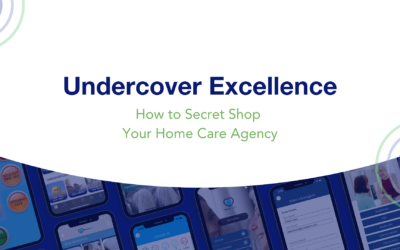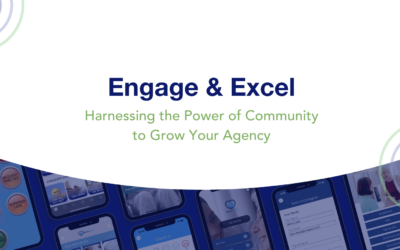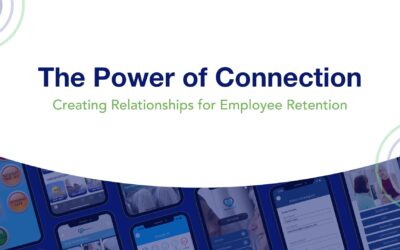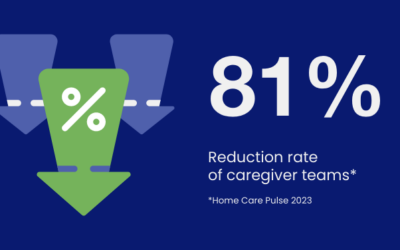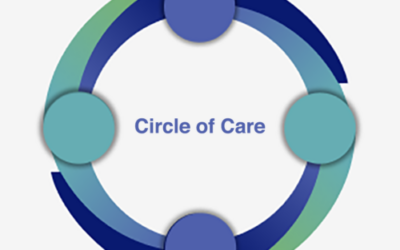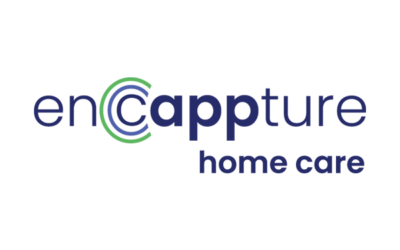Tips for Interviewing the Best In-Home Caregivers
While the recruitment woes that plagued the industry throughout the pandemic have lessened, a major shift that occurred during those years is likely to be permanent across most industries: interviews are a mutual evaluation process.
That means that, just as you’d expect a candidate to present themselves professionally and provide compelling reasons you should hire them, you’ll need to respect their time and be prepared to “sell” your agency. What can you offer? Why should this candidate work for you, especially when there are other employers hiring in your area for the same pay?
Want to get (and keep) the best candidates in your hiring process? Here’s how:
- Make the best first impression.
- Ask the right questions.
- Keep the momentum going.
Make the Best First Impression
The majority of the work required for a successful interview happens before the applicant ever walks through your door. With the right preparation, you can turn your hiring process into the first step in a long-term retention plan that creates satisfied, high-performing employees.
Here are a few ways to improve your first impression with your candidates:
- Limit Pre-Interview Paperwork. While it’s tempting to have candidates fill out lengthy applications to gain as much information as possible pre-interview, evaluate what you can reasonably live without. Can you allow a résumé upload rather than having them retype their entire work history? Can certain forms be filled out at your office, while waiting for their interview? Remember, many of your job candidates will be applying from a mobile device. A mobile-friendly job application (meaning the website or app you use is mobile-optimized and the questions can be easily answered from a phone keyboard) is key in helping you gain applicants.
- Make Interview Scheduling Easy. Caregivers are able to start working at a new job much faster than in other industries, sometimes in as little as a few days. This means that, if you can’t fit them into your schedule for a week, they can go through the entire hiring process and start at a new position before your first conversation. Include a link to your calendar so applicants can self-schedule their interviews and move along in the process quickly.
- Customize Your Questions Ahead of Time. You should have a set of standard questions you ask in interviews, as well as a few you may want to add depending on the employment history and personality of the candidate. Before you even sit down with an applicant, review your interview questions. Remove any that are answered by their résumé or other application materials, and select any additional questions you’d like to ask.
Ask the Right Questions
The interview is your chance to evaluate all of the factors that determine whether a candidate will be your star employee or leave in the first 90 days. While a candidate’s work experience can give you a glimpse into their skills, your interview questions need to help you determine how they’ll respond to unexpected situations and whether they’ll enjoy working for your agency long-term.
Ensure you include these three types of questions in your interview:
- Questions to Evaluate Their Skills. Even if your applicant is new to caregiving, they may have transferable skills from a past job. Create a list of some of the most common skills required of your employees, and ask them to share any relevant experience. Can they provide light housekeeping? Prepare simple meals? Assist with hygiene tasks? You may be surprised how much past experience your applicants have, even if they come from a job outside of home care.
- Questions to Evaluate Their Thought Process. You can’t train or set a standard for every possible situation, which is why it’s so important to understand how your caregivers think. Does their approach to problem solving align with your agency’s standards and values? Ask how they’ve handled common situations that occur within your agency in the past. If they’re new to caregiving, ask them to walk you through how they would hypothetically approach those problems.
- Questions to Address Their Concerns. Interviews are a two-way street. Rather than spending your entire time on questions about your candidate, give them time to ask you questions about the job and ensure the position would be a good fit. If they don’t have any questions, consider sharing the answers to some common questions other caregivers have asked.
Keep the Momentum Going
By the end of the interview, you should know if this candidate is the right fit for your agency. If you’ve found a match, congratulations! Now is the time to keep the momentum going.
Here’s how to keep candidates excited about your agency from the end of their interview through their first day on the job:
- Set Expectations for Next Steps. If you want to keep your best candidates engaged, let them know what to expect. Ideally, you’ll know right away whether you’d like to move forward with a caregiver. In that case, have them complete any next steps you need for hiring before they leave the building, whether that’s new hire paperwork, scheduling their training, or meeting the team.
If you absolutely need more time to make a decision, ensure your candidate knows exactly when they can expect to hear from you. While “we’ll let you know if you were chosen soon” may mean “within a week” for you, it could mean “within 24 hours” for your candidate, leaving them frustrated and moving on to other potential employers. Let them know what the next steps are in your hiring process, when each step will happen, and how you will contact them. - Start as Soon as Possible. While candidates in the average industry are available to start in around 2 weeks, caregivers are frequently ready to start at a new job in just 3 days. If you’re not able to get new employees started in their role quickly, you’re likely to lose them to a competitor, especially since caregivers are likely living paycheck to paycheck. To accommodate this, consider options like a self-guided onboarding program available to caregivers from the moment they accept the job.
Many of our customers accomplish this by having new caregivers download their mobile app at the end of a successful interview. Their onboarding paperwork and training is available within the app so caregivers can get started at their own pace. - Make the Best Impression–On Every Candidate. While it’s never fun to deliver bad news, it’s critical to treat all candidates, even those you decide not to hire, with respect. Rather than radio silence, let unsuccessful candidates know your decision with a brief message thanking them for their interest. If you have time and concrete information on why you didn’t choose them, consider sharing that as well.
Aside from being the kinder thing to do, it’s just good business sense. They may share their interview experience with friends and family–either encouraging or discouraging your future star employees.
Turn Applicants into Star Employees
While home care’s hiring woes seem to be lessening, we’re still plagued by high turnover rates and low caregiver retention. The right hiring process sets the tone for the rest of an employee’s tenure with your agency; make sure it’s a good one!
These tips will help your agency, regardless of the systems and processes you currently use. However, if you’d like to automate a significant portion of interview scheduling and onboarding right in your own, branded mobile app, enCappture can help! Schedule a demo with us here.






